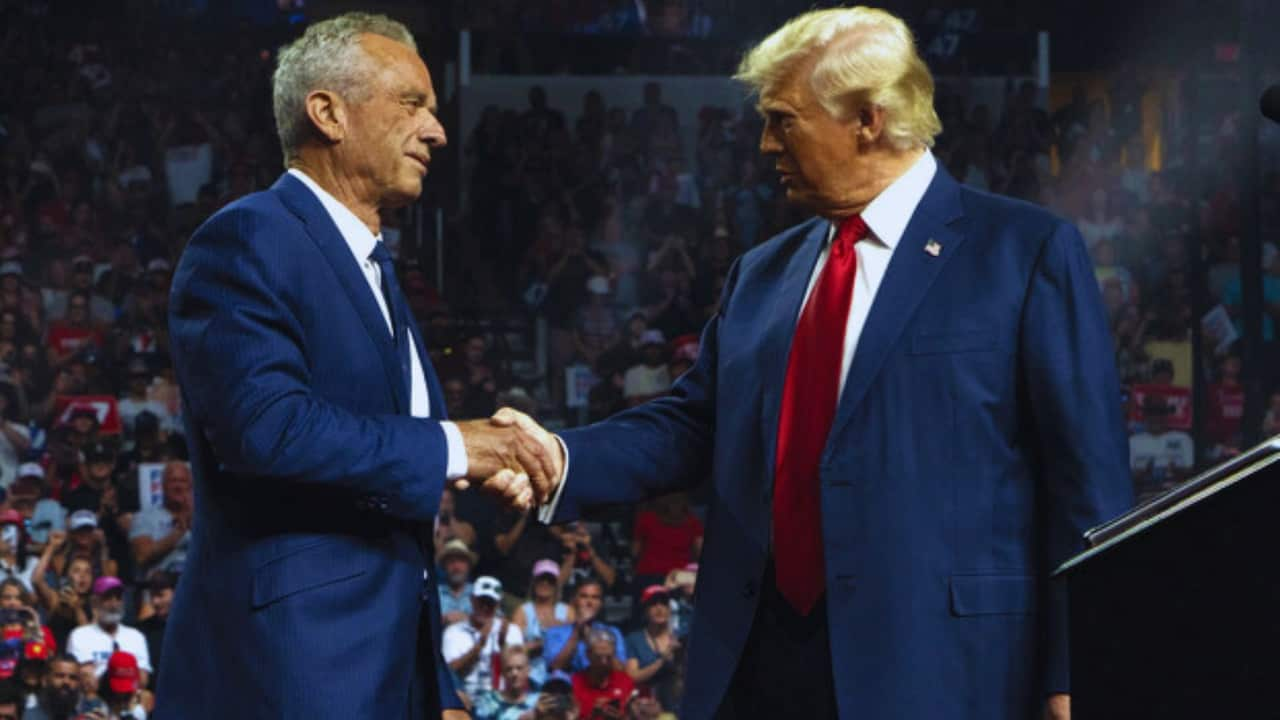Trump’s Secret Transition: Ethics Agreements Stall as National Security Concerns Mount
In an unprecedented move that has sparked concerns across Washington, President-elect Donald Trump has yet to sign crucial ethics agreements necessary for a smooth transition of power, marking a significant departure from historical precedent.
The standoff has created a ripple effect throughout the federal government, with Trump’s designated Cabinet picks unable to access their future departments or receive essential briefings.
Perhaps most notably, Robert F. Kennedy Jr., Trump’s choice to lead the Health and Human Services Department, has been repeatedly denied access to the agency he may soon oversee.
“This situation is completely uncharted territory,” says Senator Elizabeth Warren, who has raised alarm about the implications for national security. “The incoming administration is effectively operating in the dark on critical matters.”
The core issue centers around three key agreements Trump has delayed signing:
- The standard ethics and transparency pledge
- FBI background check authorizations
- Agency access memorandums
This delay has real-world consequences. Trump’s team currently cannot:
- Send in “landing teams” to federal agencies
- Access secure government servers
- Receive classified briefings on national security threats
- Begin background checks for nominees
The impact is already showing. Matt Gaetz, Trump’s initial pick for Attorney General, withdrew his nomination following revelations about alleged sexual misconduct – information that might have been flagged earlier through standard FBI vetting. Similarly, Pete Hegseth’s nomination for Defense Secretary faces scrutiny over previously undisclosed allegations.
What makes this transition unique is Trump’s unprecedented approach to funding. Unlike previous transitions, including his own in 2016, Trump’s team operates without the usual $7.2 million in federal transition funds. Instead, they’re raising money privately with no disclosure requirements – meaning foreign nationals could potentially contribute without public knowledge.
Howard Lutnick and Linda McMahon, Trump’s transition co-chairs, have repeatedly promised to sign the agreements, but deadlines in September and October passed without action. Sources close to the transition suggest Trump’s team believes they’re operating effectively from Mar-a-Lago without federal assistance.
National security experts warn this approach could leave the incoming administration blindsided by emerging threats. Without proper access, Trump’s team lacks insight into:
- Ongoing military operations in the Middle East
- The situation in Ukraine
- High-level diplomatic communications
- Domestic threats like the spread of avian flu
“When you’re preparing to run the federal government, you need more than just public information,” explains Heath Brown, a presidential transition expert at John Jay College. “This isn’t just about transparency – national security and good governance.”
Congressional leaders from both parties have expressed concern about the implications. Senator Tim Kaine, a senior member of the Armed Services Committee, warns that nominees lacking proper FBI background checks may face confirmation hurdles.
As January 20th approaches, the clock is ticking. While Trump’s team maintains that they’re conducting private background checks and following internal ethics guidelines, watchdog groups argue that this falls short of federal requirements and established norms.
The situation presents a stark contrast to previous transitions. Obama’s 2008 transition raised $4.5 million with strict donation limits and complete transparency. Though smaller, even Trump’s 2016 transition operated within traditional frameworks and disclosed its funding sources.
As Washington watches this unprecedented situation unfold, one thing becomes clear: the traditional roadmap for presidential transitions is being rewritten, raising questions about transparency, security, and preparedness that will likely echo well into the new administration.
